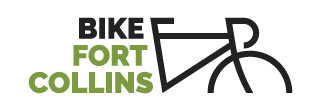As follow-up to the December 2019 Pathways to Health, resident-led event, we hosted two resident grant workshops to improve community member access to existing city and county resources.
February 2020 Workshop
On February 1, 2020, we hosted a Neighborhood Services Workshop in which residents applied for the City of Fort Collins Mobile Home Park Neighborhood Improvement and Community-Building Mini Grants, a funding stream which was established as a direct result of the December Pathways event. Residents applied for funds for safety lighting, tree trimming, sewer scoping, and other community identified priorities. As a group, the resident coalition applied for streetlights to provide better, more comprehensive neighborhood lighting. This grant workshop minimized barriers by enabling residents to complete the application during the session thanks to facilitation from community leaders, interpreters, and city staff. Over 30 applications were completed on February 1. Moving forward, interest remained high for this type of event. This workshop resulted in the resident coalition receiving $5,000 for safety lighting and $5,000 for tree trimming from City of Fort Collins Neighborhood Services.
March 2020 Workshop
On March 7, 2020, we hosted another grant workshop during which residents not only applied for Neighborhood Services grants, but also applied for the City of Fort Collins Department of Recreation Reduced Fee Program, Colorado Low-Income Energy Assistance Program, Fort Collins Utilities Payment Assistance, and Alianza NORCO Citizenship and Driver License Workshops.
Takeaways
Through the second phase of Pathways to Health events, we have found that barriers to active living practices and the difficulties accessing safe routes to prioritized destinations are caused not only by direct challenges, but also by systemic power differentials that affect the quality of life and opportunities of Latinx individuals in Fort Collins mobile home parks. By focusing on empowerment and community needs at a more holistic macro level, we facilitated residents’ effort to become their own advocates for individual, neighborhood, and community level change, which results in better health.
